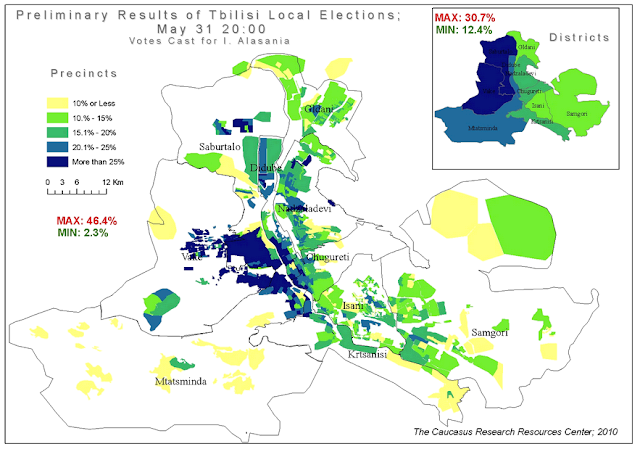We have had some problems with the HTML in rendering paragraph breaks -- apologies if this has put multiple posts into your RSS feeds. The problem is that Blogger introduces some unusual breaks when we paste text into the online interface. We've tried cleaning all the HTML out, but this doesn't seem to be doing the trick quite yet, so we were experimenting. We hope that this is fixed now.
Thursday, June 24, 2010
Wednesday, June 23, 2010
Who is Russia's Enemy? | Pew Research Center Data
You will have seen that we are much intrigued by the Pew Research Centers. They do surveys on global attitudes, and increasingly we are trying to make some of our questions cohere with their efforts, so that we have a more telling international comparison. (This isn't always easy, since replicating their question may go at the expense of continuity of our old questions.)
There are a lot of people that say yes, but also a lot of people say they don't know, or refuse to answer. So less than a third of Russians are certain that they are not beleagured by enemies of Russia that are lurking out there.
And who are the enemies? Those that said that there are enemies of Russia were asked to specify.
Note: this does not mean that 43% above Russians consider Georgia an enemy, it's 43% of the 57% that said Russia has enemies, so closer to 25% total. Still, this is a stunning number. You might think, for example, that China was more on the mind of Russians. But tiny Georgia is right up there with the United States.
In other parts of the survey 49% of Americans say they have a favorable view of Russia, and 57% of Russians say they have a favorable view of the United States.
The Global Attitudes Project has much more interesting information, which you can read here. Our previous posts on Russian attidues in 2008 here, and 2009 here. We wrote a short piece on Georgian attitudes here.
Posted by
HansG
at
8:02 PM
0
comments
![]()
Labels: Georgia-Russia War, Russia
Sunday, June 20, 2010
Survey Snippet | WorldCup
Posted by
HansG
at
9:10 PM
2
comments
![]()
Thursday, June 17, 2010
Greatest Threats Facing the World | Data from the 2009 CB & the Global Attitudes Survey

Posted by
VazhaB
at
5:48 PM
0
comments
![]()
Labels: Caucasus Barometer, Child Poverty, Data Initiative, Development, HIV/AIDS, Pew Research Centers, Survey
Wednesday, June 16, 2010
Language Learning in Georgia
In winter 2008, CRRC together with the American Councils conducted some research on the ways foreigners learn languages in Georgia. Hans Gutbrod and Malte Viefhues have recently published a paper in CRIA, analyzing the results and providing interesting insights into incentives to language learning and the importance of Georgian and Russian for foreigners in the country.
The data indicates that while Georgian is very important for living in Georgia, Russian is more useful in a professional context. This could explain why, on average, the respondents – many of whom have worked in different CIS countries – have a better level in Russian than in Georgian. As these languages serve in different domains, knowing one did not keep the respondents from learning the other: 87 percent of the respondents with Russian skills know some Georgian as well.
To read the full paper, visit the CRIA's website.
Monday, June 14, 2010
Demographic statistics in Georgia | Results from international research
Posted by
Therese Svensson
at
12:36 PM
1 comments
![]()
Labels: Demography, Georgia
Tuesday, June 01, 2010
Election Maps | Who Did Your Neighbors Vote For?
Our GIS Analyst, Dato Sichinava, is now loading preliminary results onto our election maps. If you want to compare regional distribution of results, you can do so very quickly through the portal. Below you see the votes for the Alliance throughout Georgia. Note that on the portal, you can grab the handle (see the arrow) and shift it back and forth.
We also have the results for the United National Movement, and the Christian Democrats. More stuff will come online soon, and we are about to make the maps bigger, so that you can play better -- check it out here.
We also have preliminary results for the precinct level in Tbilisi. Note that this is not yet available on the portal. But it shows a fascinating contrast of support.
Unsurprisingly, Vake is among the strongest supporters of Alasania. Parties should find this data very useful to target their campaigning in the future.
(We would like to thank the National Democratic Institute and the Swedish International Development Agency, Sida, for their support in generating this data, and making it broadly available.)
Posted by
HansG
at
4:19 PM
0
comments
![]()







